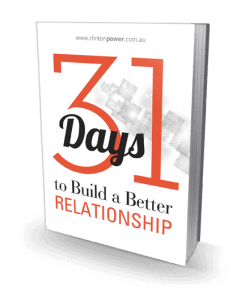The Dangerous and Cruel Reality of Gay Conversion Therapy
Gay conversion therapy is a controversial practice that has been around since the 19th century. It can bring a lot of harm physically, psychologically, and emotionally to the people subjected to it.
Members of the LGBTQI+ community are healthy and valid individuals with normal gender identities and sexual orientations. No one should be forced to undergo a conversion away from their best and most authentic self.
What does gay conversion therapy involve?
Gay conversion therapy (also called reparative therapy) aims to change your sexual orientation or gender identity. It’s a harmful practice that’s not based on science. At its core, conversion therapy is homophobic, trying to change an individual to be heterosexual and cisgender. It views any person under the LGBTQ+ umbrella to be wrong and in need of “fixing”.
Conversion therapy can be one-on-one like traditional counselling, but it can also happen in groups such as at retreats or conferences. It can be offered for free or as a paid service. This variance makes it tricky to identify, as it has many different appearances. However, any therapy whose aim is to change your gender identity or sexual orientation is harmful and not a legitimate practice.
Due to the shift in perception of the LGBTQI+ community in the last several decades, gay conversion therapy has largely moved underground and is commonly hidden within evangelical churches and ministries. It’s sometimes present in religious schools or practised in the private offices of some unethical health professionals.
Is there any evidence that conversion therapy works?
There is no medical or scientific evidence that gay conversion therapy is successful. In contrast, there’s ample evidence discrediting conversion therapy, indicating that it’s both harmful and dangerous.
Due to its highly negative impact, a wide range of medical, professional, and human rights groups strongly oppose conversion therapy, including the Australian Psychological Society, the Australian Medical Association, and the United Nations.
Gay conversion therapy is based on the idea that the LGBTQI+ experience is a mental health illness. This notion is false, as all major medical associations agree that LGBTQI+ identities are a standard variant of human nature and not health problems that need curing.
In support of this claim, The American Psychiatric Association (APA) has not treated homosexuality as a mental illness since 1973, and “gender identity disorder”, which was a term to describe the transgender experience, was removed from psychological diagnostic manuals in 2013. The APA states that no credible evidence exists to support that mental health intervention can change sexual orientation, nor that sexual orientation needs to be changed.
What lasting effects can conversion therapy have?
Conversion therapy often reinforces any homophobia and self-loathing that you already carry around with you. Coming out is commonly a process of addressing and dealing with internalised homophobia, feelings of shame, and the stigma of being different. Gay conversion therapy exacerbates that struggle by falsely validating and building on those negative feelings.
If you’ve experienced conversion therapy, you may have increased feelings of isolation, guilt, anxiety, and depression. Self-destructive behaviour and substance abuse are also common. This combination leads to both mental health issues and higher rates of suicide. Studies show that suicide attempts increase by more than 50% following exposure to gay conversion therapy in young people.
Family relationships also suffer as an effect of conversion therapy. Parents who support conversion therapy for their children augment the stigma and shame experienced by LGBTQI+ children, leaving them feeling unsupported and further isolated by their family members.
How common are these procedures now?
Definitive statistics on these procedures in contemporary Australia have not been thoroughly documented, so it is difficult to say with any accuracy.
However, a 2017 United Kingdom national LGBTQI survey showed that 2% of survey-takers (2,160 people) had undergone conversion therapy, and an additional 5% had conversion therapy offered to them. Over 108,000 people participated in the survey.
Conversion therapy has already been banned in many countries, including Germany, Malta, Brazil, the USA, and parts of Spain. The European Parliament has openly condemned all discrimination against LGBT+ people, including conversion therapy, and Canada has introduced new legislation to criminalise conversion therapy.
The evidence that gay conversion therapy is dangerous and discredited has reduced the practice, compared to its inception in 1899. A more significant decrease began after the APA removal of homosexuality from its psychological diagnostic manuals in 1973 – when medical professionals began turning away from such practices.
What support is available if you have been impacted by conversion therapy?
Essential support for any LGBTQ!+ person includes connecting with positive LGBTQI role models. This is true whether you’ve been exposed to gay conversion therapy or not, as it can be a significant step in building a support network, healing, learning acceptance and self-love, and overcoming negative feelings around your sexual orientation and gender identity.
Another critical step in building your LGBTQI+ support network is connecting with LGBTQI+ peers.
There is a range of groups and communities that offer support to people related to LGBTQI+ issues in NSW and Australia:
Twenty10 is a Sydney-based group that offers many supportive and social programs for LGBTQI+ youth.
QLife is Australia-wide, anonymous, and free. It offers LGBT+ peer support for people wanting to talk about sexuality, gender, identity, bodies, feelings, or relationships.
PFLAG Australia is an organisation for family and friends of LGBT+ people. It offers the opportunity to speak with other parents of LGBTQ+ people for support.
The Gender Centre is Sydney-based and provides information and support to trans and gender-diverse people in NSW.
ACON is a health organisation serving NSW, specialising in support for people with HIV and LGBTQI+ people.
Counselling with a gay-affirmative therapist is another avenue for support. Gay-affirmative counsellors can help you work through a wide range of issues connected to LGBTQI+ specific experiences, including the impacts of conversion therapy.
Counselling is not limited to conversion therapy incidents and may be sought outside of that context as well.
Listen to my interview on Sydney radio station 2SER 103.7 where I speak about the dangers of gay conversion therapy.
The takeaway
Gay conversion therapy is a toxic practice. Your gender identity and sexual orientation are valid and healthy. Any professional or authority figure that tells you otherwise or presses you to undergo conversion therapy is not following ethical practices. If you’ve undergone conversion therapy and need support, counselling and support networks are available for you to utilise.
Are you an LGBTQI+ person who is struggling in your life or relationships?
If so, contact Sydney Gay Counselling on (02) 8968 9323 to find out how we can help or book an appointment online.

